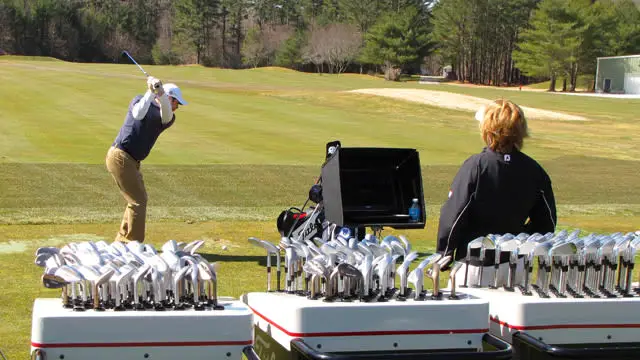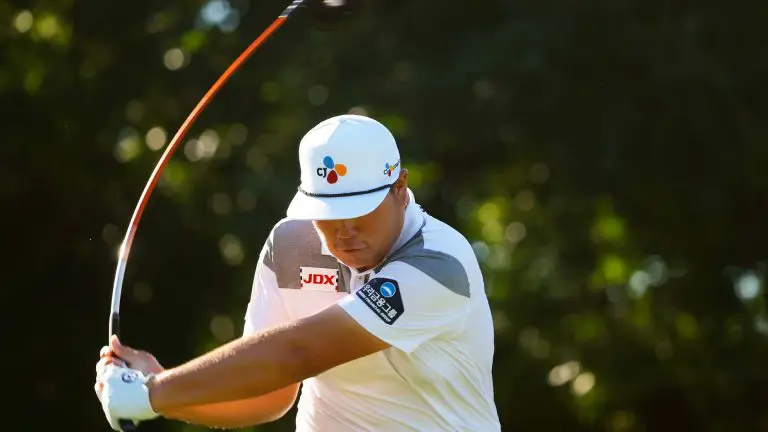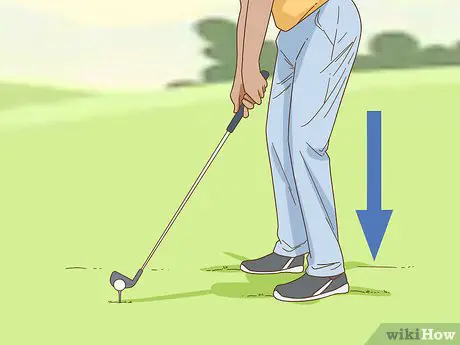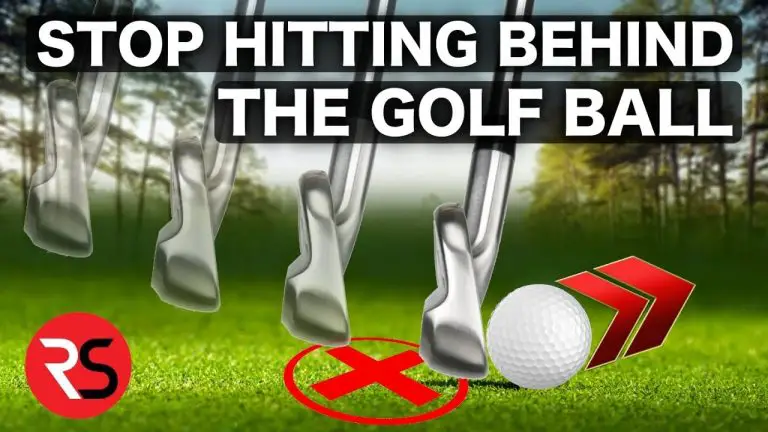How Long Should My Irons Be
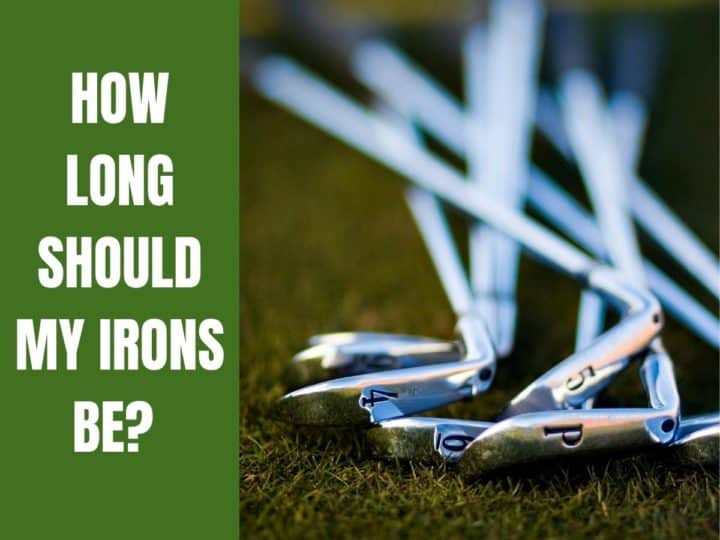
Choosing the right length for your irons is a critical factor in optimizing your golf game. The length of your irons directly affects your swing mechanics, posture, and overall control over the ball. Whether you’re a beginner or an experienced golfer, finding the perfect fit for your irons is essential for consistent and accurate shots on the course.
In this comprehensive guide, we will explore the factors that determine the ideal length for your irons and provide practical insights to help you make informed decisions. We’ll discuss the impact of body measurements, swing characteristics, and playing style on iron length. Additionally, we’ll delve into the club fitting process and the benefits of seeking professional advice to ensure a customized fit for your irons.
Understanding the relationship between your body, swing mechanics, and iron length will empower you to make confident choices when selecting your golf equipment. By having irons that are the right length for your game, you can enhance your ball-striking ability, achieve better consistency, and enjoy improved performance on the course.
So, whether you’re looking to upgrade your current set of irons or seeking guidance as a new golfer, this guide will provide you with the knowledge and tools necessary to determine the ideal length for your irons. Get ready to take your golf game to the next level by finding the perfect fit for your irons. Let’s dive in and explore the fascinating world of iron length customization.

Understanding the Importance of Iron Length
Your iron length directly influences your swing mechanics, including your posture, swing plane, and contact with the ball. Having irons that are the correct length for your body and swing style can help you achieve better ball-striking, accuracy, and distance control. It allows you to maintain a proper address position and execute a consistent swing motion.
Factors to Consider for Determining Iron Length
Several factors contribute to determining the optimal length for your irons. By understanding these factors, you can make an informed decision and choose irons that suit your game. Let’s explore them in detail:
Body Measurements
Your height and wrist-to-floor measurement are critical considerations when determining iron length. Taller golfers generally benefit from longer irons, while shorter golfers may find shorter irons more suitable. However, it’s important to note that body measurements alone do not provide a complete picture. Other factors, such as arm length and posture, also come into play.
Swing Characteristics
Your swing characteristics, including swing speed, tempo, and attack angle, play a significant role in determining iron length. A golfer with a faster swing speed may benefit from shorter irons, allowing for better control and consistency. On the other hand, a golfer with a slower swing speed may find longer irons helpful for generating more distance.
Skill Level and Playing Style
Your skill level and playing style influence the choice of iron length. Beginner golfers often find it easier to control shorter irons, which offer more forgiveness and precision. Advanced players, who have developed a consistent swing and ball-striking ability, may opt for longer irons to maximize distance and shot versatility.
The Club Fitting Process
To accurately determine the ideal iron length for your game, consider going through a club fitting process. Club fitting involves working with a professional who assesses your swing mechanics, body measurements, and other factors to recommend the most suitable iron length. Here’s an overview of the club fitting process:
- Consultation and Evaluation: The club fitter will discuss your goals, playing style, and assess your current equipment. They will take into account your height, wrist-to-floor measurement, and gather information about your swing mechanics.
- Measurement and Analysis: Using specialized tools, the club fitter will take precise measurements, including your arm length and hand size, to determine the appropriate iron length. They may also utilize swing analysis technology to gather data on your swing characteristics.
- Trial and Feedback: You will have the opportunity to try different iron lengths and provide feedback on how they feel and perform. The club fitter will analyze your ball flight, consistency, and shot dispersion to guide the selection process.
- Customization and Fine-tuning: Once the optimal iron length is identified, the club fitter can customize other aspects, such as shaft flex, grip size, and lie angle, to ensure a perfect match for your swing mechanics.
Potential Consequences of Incorrect Iron Length
Using irons that are the wrong length for your game can have detrimental effects on your performance. If your irons are too long, you may struggle with consistency and control, leading to errant shots and difficulty in achieving proper contact with the ball. On the other hand, if your irons are too short, you may find it challenging to generate sufficient power and distance, resulting in a loss of yardage.
Incorrect iron length can also impact your posture and swing mechanics. If the irons are too long, you might be forced to hunch over excessively, leading to an upright swing and a lack of balance. Conversely, if the irons are too short, you may have to bend too much at the waist, causing a flatter swing plane and potential loss of control.
It’s essential to find the right balance in iron length to optimize your swing mechanics, consistency, and overall performance on the course.
Seeking Professional Advice
While understanding the factors that influence iron length is valuable, it is highly recommended to seek professional advice through a club fitting session. Club fitters have the expertise and specialized tools to accurately assess your swing dynamics, body measurements, and playing style. They can provide personalized recommendations based on data-driven analysis, ensuring that you find the ideal iron length for your game.
A professional club fitting not only helps determine the appropriate iron length but also considers other aspects such as shaft flex, lie angle, and grip size. These factors further enhance the performance and feel of your irons, allowing for a more consistent and enjoyable golfing experience.
Experimentation and Feedback
While professional club fitting is invaluable, it’s important to note that personal experimentation and feedback are also crucial in finding the perfect iron length. As you try different irons with varying lengths, pay attention to how they feel in your hands, how well you can maintain proper posture, and the consistency of your ball-striking.
Consider gathering feedback from experienced golfers or instructors who can observe your swing and provide insights on the suitability of the iron length you are testing. Their guidance can help you make informed decisions and fine-tune your equipment selection.
Adjustments Over Time
It’s worth noting that your ideal iron length may evolve over time as your body and swing characteristics change. Factors such as growth, changes in flexibility or strength, and improvements in swing mechanics can all impact the optimal iron length for your game. Regular reassessment, particularly as you progress in your golf journey, ensures that your irons remain tailored to your needs.
Conclusion
Finding the right length for your irons is crucial for optimizing your golf performance. Considering factors such as body measurements, swing characteristics, skill level, and seeking professional guidance through club fitting sessions can help you identify the ideal iron length for your game.
Remember that individual preferences and feedback are essential in the process. Experiment with different iron lengths, gather feedback from experienced golfers, and be open to adjustments over time. With the right iron length, you can achieve improved consistency, control, and overall enjoyment of the game. So, take the time to find the perfect fit and elevate your golfing experience to new heights.

